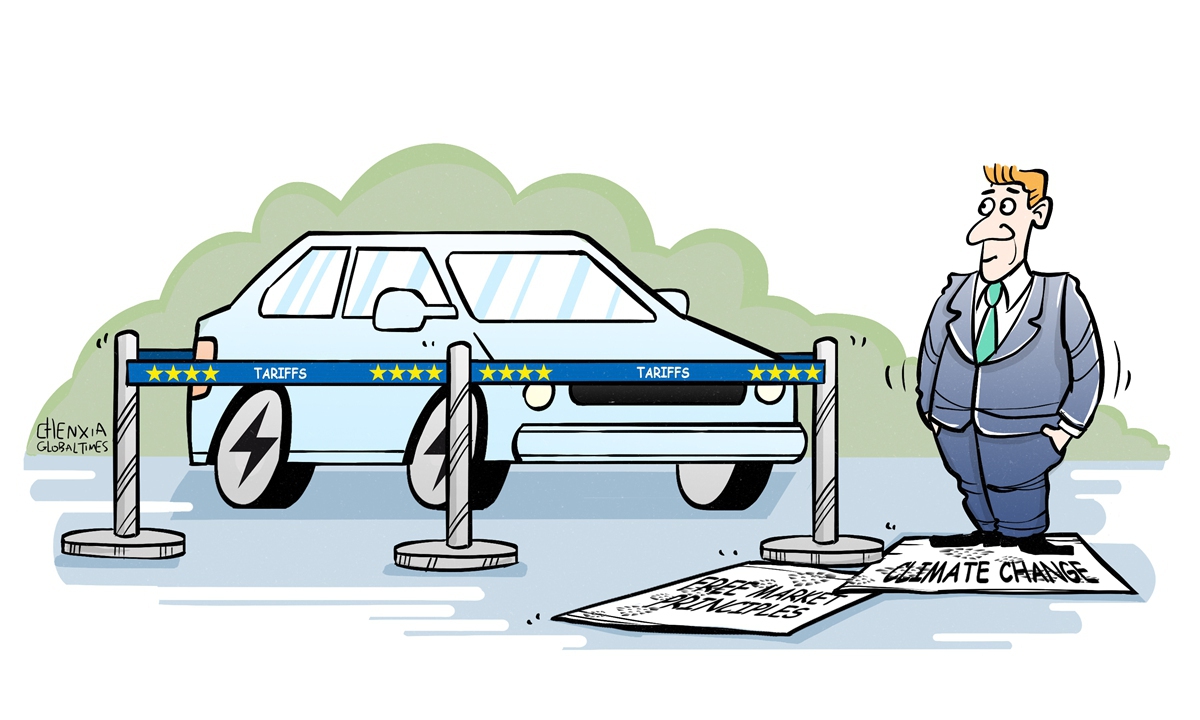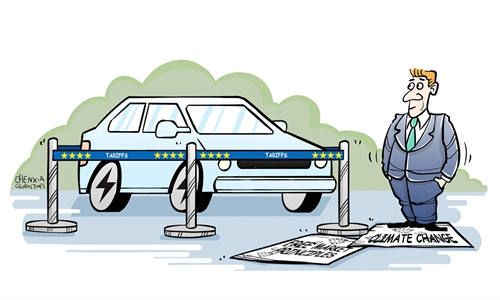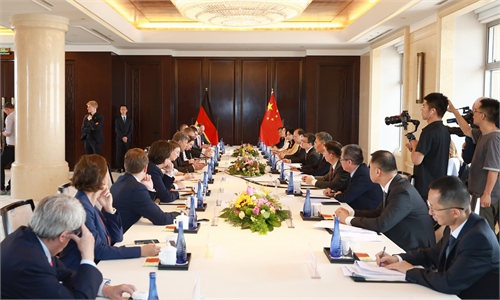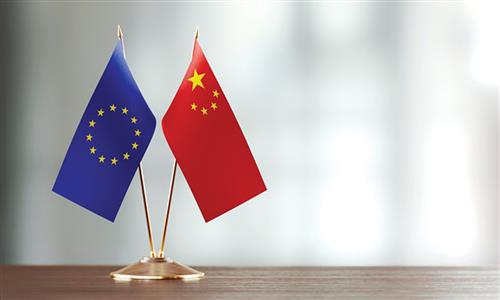European Commission should heed to rational voices of China and Europe: Global Times editorial

Illustration: Chen Xia/Global Times
China's Commerce Minister Wang Wentao, who is visiting Europe, will hold talks with European Commission Executive Vice President and Trade Commissioner Valdis Dombrovskis on September 19, and the two sides will discuss the "rising trade tensions between China and the EU."Recently, there have been growing calls in Europe to resolve the issue of additional tariffs on Chinese electric vehicles (EVs) through negotiations. Some media analyzed that compared with a few weeks ago, the passage of the tariff vote is no longer "the done deal" in EU.
Many European countries want to resolve the EV tariff issue through dialogue and consultation. Before arriving in Brussels, Wang has visited Italy and Germany. Berlin stated that the package of solutions proposed by China laid a good foundation for the next step of negotiations between Europe and China, and called on the European Commission to respond constructively; Italy also expressed the hope that the EU and China can reach a solution through dialogue and consultation. Earlier, Spanish Prime Minister Pedro Sanchez before the end of his visit to China called on the EU to reconsider tariffs on Chinese EVs. Countries such as Sweden and Hungary have already publicly expressed their opposition. Reportedly, many EU member states have shown great interest in the price commitment solutions proposed by China.
On the tariff issue, China has upheld the greatest sincerity and proposed flexible solutions, and the Chinese industry has also pragmatically proposed various solutions.
However, the European side claims that it is willing to resolve differences through dialogue while continues to reject China's proposals without any specific counterproposals, and shows no political will to resolve the issue through consultation.
Not only is China deeply disappointed with this attitude of the EU, but EU member states also showed dissatisfaction. Multiple sources hinted to the media that several countries have expressed doubts about "Brussels' rejection of a series of Chinese proposals."
The European Commission's attitude of ignoring, resisting and rejecting China's efforts to solve the problem is not new. It has been happening throughout the entire process of the EU's so-called anti-subsidy investigation of Chinese EVs. This makes us wonder whether the European side is sincere in solving the problem. Or the EU has ulterior motives and it did not really intend to "seek trade fairness" or "protect the competitiveness of European companies" from the beginning, but "convicted" Chinese companies by a "presumption of guilt" before drawing an objective and true conclusion.
The Global EV Outlook 2024 report released by the International Energy Agency (IEA) shows that global EV sales are expected to reach 17 million this year, accounting for over 20 percent of global car sales. Fatih Birol, executive director of the IEA, said the global EV revolution appears to be gearing up for a new phase of growth.
The wave of investment in battery manufacturing suggests the EV supply chain is advancing to meet automakers' ambitious plans for expansion. As a result, the share of EVs on the roads is expected to continue to climb rapidly.
At this critical juncture, the world is closely watching what stance the European side, as a long-time advocate of free trade and clean energy, will take regarding Chinese-made EVs in Europe, what decisions will be made, and what kind of result will be achieved.
According to data from the European Automobile Manufacturers' Association, Europe's EV development has fallen short of expectations. The market share of EVs in Europe shrunk from 14.16 percent in 2023 to 12 percent in 2024, and less than 30 percent of European consumers say they intend to buy EVs.
This has seriously disrupted the normal pace of the EU's green transition, dampened consumer enthusiasm, and shrunk the overall size of the European market. In contrast, countries in the Global South, including Vietnam, Thailand, Brazil, Indonesia, and Malaysia, are witnessing rapidly growing demand for EVs.
These countries face fewer geopolitical complexities, allowing them to forge ahead more freely. Some European scholars have pointedly stated that, Europe needs Chinese EVs to reverse this situation, revitalize the European market, and encourage European car manufacturers to further embrace the transition.
Imposing additional tariffs will seriously disrupt China-EU trade and investment cooperation. This is not something caused by China, nor is it something China wishes to see. However, if the European side insists on pursuing this path, China will take necessary measures to resolutely defend the legitimate rights and interests of its enterprises and industries.
China has repeatedly made this point clear. There is still ample time to resolve the issue, but the key lies in Brussels breaking away from a "win-lose" mind-set and returning to the essence of China-EU economic and industrial relations to objectively and rationally assess the pros and cons of Chinese EVs and the broader China-EU relationship.



